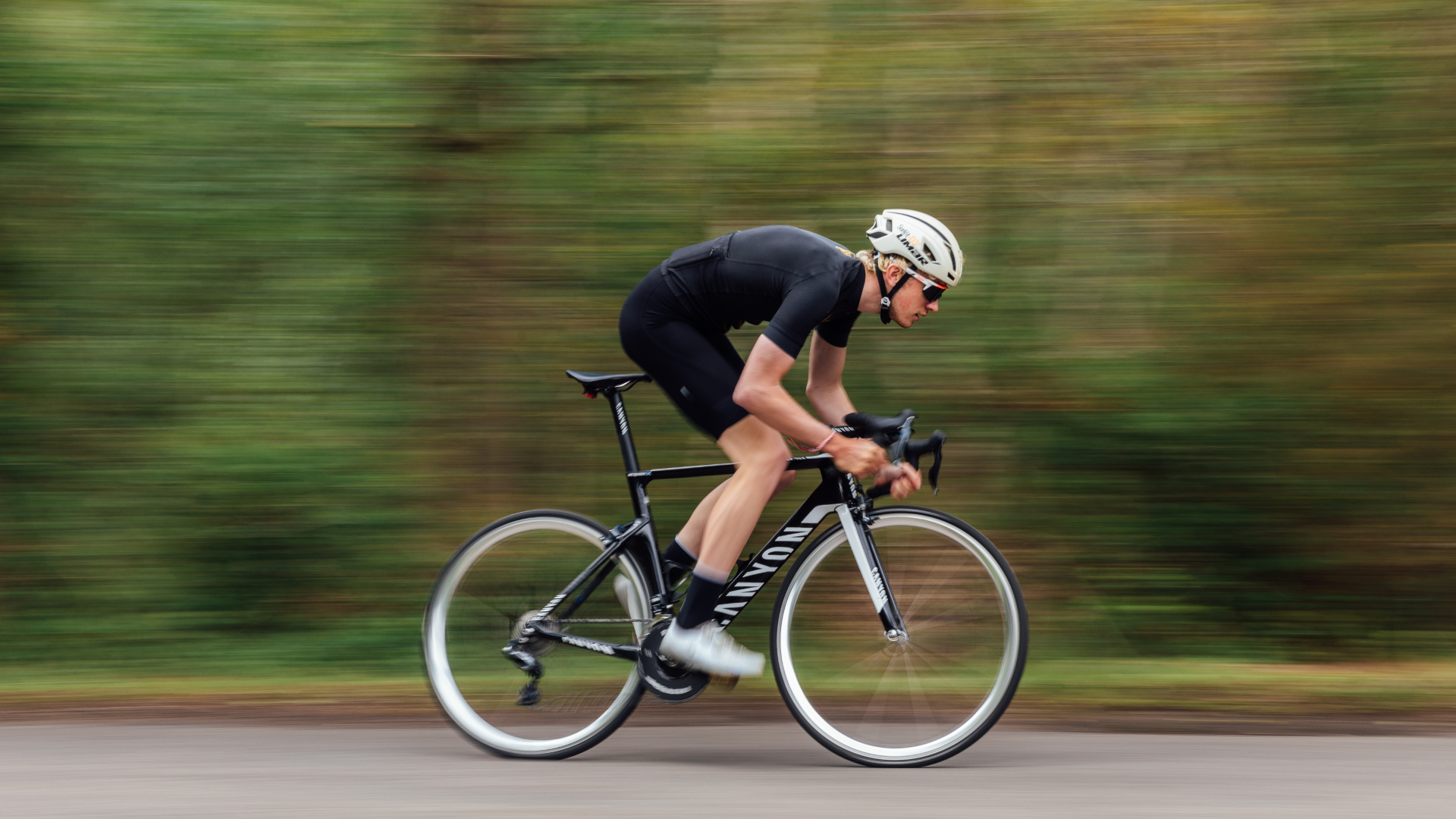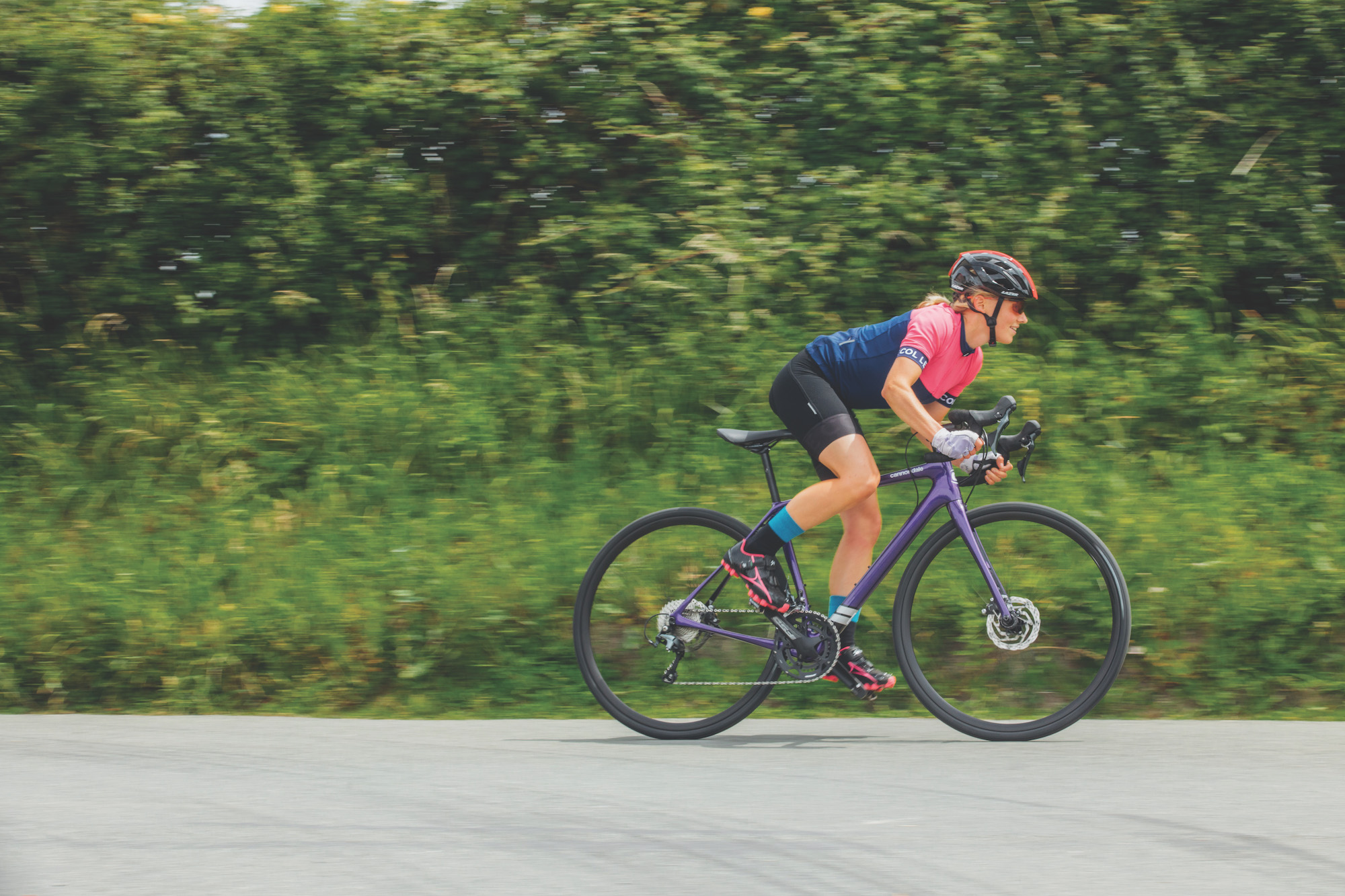Are you a slave to your power meter? Here's what the experts say about training on both power and feel
With even some pro teams cautioning against an over-reliance on power meters, Dr Josie Perry makes the case for staying in touch with your winning instincts


The latest race content, interviews, features, reviews and expert buying guides, direct to your inbox!
You are now subscribed
Your newsletter sign-up was successful
Is it possible to become too obsessed with the numbers? Are power meters really holding us back by making us over-reliant on an external measure of effort? Don’t they simply allow us to be accurate, objective and, therefore, controlled in our riding?
The best power meters are the ideal tool to quantify your workouts, giving instant knowledge of how many watts you are producing at any given moment – and watts are, of course, the ultimate metric for cyclists. Once you know your wattage for each training zone, you can use and train with a power meter to track and measure your progress with fantastic accuracy.
This frees you to keep focused on specific goals; if you fail to hit your numbers, you know that it is time to rest and recover. Having an accurate reading of intensity allows us (or our coaches) to design more effective programmes, learn whether our perceptions of effort match the reality of output and help us to keep easy efforts easy and hard efforts hard.
Even so, despite all these benefits, a power meter isn't a magic wand. We need more than numbers to be great cyclists. We need to trust ourselves and our abilities to maintain a feel for the bike, as well as our own form and fitness, to have fun and, sometimes, to make our own decisions. And of course, we need to pay the bills – a fancy new power meter can’t rank as a higher priority than food and clothes for the kids! Our data devices cannot be allowed to dictate our cycling lives.
Trust yourself

Focusing on hitting specific numbers helps us to realise our own expectations, but it can stop us reaching higher. This means we’re liable to get stuck in a safe zone rather than stretching ourselves to find out whether we have more to give. If every decision is data-driven, we might be holding ourselves back and missing out on using those elements of our riding that can’t be captured in data: the feel, the passion, the purpose behind what we are doing.
Former world time trial champion Chloe Dygert claimed the title in 2019 without using a power meter, which she said gave her the freedom she needed to excel. The American won with a huge 92-second gap over Olympic road race champion Anna van der Breggen.
At the time, Dygert told Cycling Weekly: “My biggest advantage was I didn’t ride with a power meter.” She had noticed her power meter holding her back in previous rides. “I remember looking down at the power meter and thinking, ‘I’m going out way too hard, I need to back it off,’ and so not having a power meter today... it was just kind of full-gas from the beginning.”
The latest race content, interviews, features, reviews and expert buying guides, direct to your inbox!
Dygert wasn’t measuring at all. She was just riding to the best of her ability, giving it everything she had, and it paid off. Cycling coach James Spragg advocates this approach, saying: “Every client of mine does sessions without the power on screen. They might record it and we can analyse it afterwards, but they won’t see it while riding.” This is vital, he says: “On race day, as Dygert showed, it doesn’t matter what the power is, it is how fast you can go.”
Know your body, know your bike

Watts are wonderful for comparison, but too much comparison can be poisonous. We are all different shapes and sizes; we all have different ambitions, adventures and pacing preferences. When we really get to know our bodies and how they feel on the bike, we can be better attuned to staying fit and healthy.
In a British study on how rugby players coped with an increased use of data being collected about their training and performance, it was found to contribute towards feelings of anxiety, precariousness and performance fatigue. For us as cyclists, if we overtrain because we religiously follow the numbers, we can end up in a whole world of pain – stress and burnout, resulting in infections and illness.
A way to combat this risk is to add perception of effort into our sessions. Perception of effort is our cognitive assessment of how hard we feel we are working.
This forces us to listen to our body and learn how we respond to different effort levels and cycling circumstances. Think of it as a scale from one to 10, as a rating of how hard we feel we are working: one is coasting, an easy spin as we cool down from a session; 10 is all-out sprinting for the line.
Keeping it fun

No one takes up cycling because they want to win a world championship. We buy a bike because we want to get places quicker or get a bit fitter, and we stick with it because it is fun. Yet experiments in health psychology at Duke University in the United States have found that, while measuring exercise via an objective measure like a power meter is good at making us do more, it also reduces how much enjoyment we get from doing it. If your eyes are on a monitor, they are not on the surroundings soaking up the world around you.
Long term, the constant influx of data can put us off training completely. Hugh Gilmore is a sport psychologist at Podium Psychology and has seen the impact of focusing too much on the data. He suggests asking yourself the question: if I won everything I could, would I still cycle? The answer to this, and importantly the reason why, will give you the priority to focus on outside of the data.
“It’s important to remember that ‘why’ and to appreciate all the other things cycling brings into your life,” says Gilmore. “Health, the friendships, rivalries, the wind in your face and seeing the world in a different way are all important, and too many numbers can kill the passion.” Though numbers matter, they must not predominate.
If you feel as though you’re losing a sense of fun from your riding, set yourself a different type of goal that has nothing to do with numbers – for example, to master a new skill, ride a new route. Even better, spend some time mentoring a junior, fundraising for a charity or sharing your favourite routes via an Instagram feed of stunning mid-ride photos and route information – connect with others and share the passion.
Keeping in context
One of the attractions of working to power is that it is unaffected by environmental conditions such as elevation change and wind. Provided your power set-up is correctly calibrated, it’s more accurate and objective than any other metric. But it can give us too much data, muddying the waters.
Gilmore is clear that we only have a limited attention span. “You can’t focus on everything. When you set a number as a target, the quality of how that target is achieved can go out the window because the quality is not the focus.” If we find ourselves forcing our performance when our body isn’t playing ball, we create a bigger stress to recover from. This thwarts improvement.
Spragg notes that many riders feel they have to ride to a certain wattage: “They will feel like they are failing if they have to drop wattage for a session. But when we are at altitude or fasted, our power might well go down.”
He gives a great example of a rider on a training camp who did their 12-minute efforts in the mountains rather than the valley. The rider was upset as their power was down by around five per cent, but actually at that altitude they should have expected a six to eight per cent drop – they had actually performed excellently. Data needs the context to offer clarity.
To provide that context, pick a route you do regularly and which is not affected too much by the weather; testing your performance on such a route is a good way to measure any improvement in fitness. A hill-climb might be best, ideally one that takes between 10 and 20 minutes to climb – short enough not to be skewed by variables, but tough enough to really get you working at your max.
Cost versus benefit
Power meters are not cheap. The average price is around $700 / £700, but can go over $1,200 / £1,200. Plus there is around £100 to pay out every time you get it serviced. In comparison, even the best heart-rate monitors for cycling can be picked up for just £50, if not already a feature on your GPS device. Although it has fallen out of favour in recent years, heart-rate guided training still has its place.
If you want to use heart rate as an effort-level benchmark, you’ll need to set your parameters. First, after a decent warm-up before cycling, ride as hard as possible for four minutes, rest for a minute, then repeat, hammering it for the final 30 seconds. Note down the heart rate you hit in that final 30 seconds. That will be your max, or very close to it.
Repeat again a few days later just to check, making sure you eke out every last drop of effort. You can then work out the percentages of that number to set training heart rates. You know you are getting fitter when you’re riding faster at the same average heart rate.
Context really matters when you use heart rate, warns Spragg: “Not just the climate and environment you are training in, but everything else going on in your life at that moment.” If you are fatigued, for example, your heart rate may be suppressed – its being lower than usual may not mean you’re not trying hard enough. He suggests you use it alongside another measuring tool to give a deeper insight.
Gadgets like power meters can help us feel in control. However it's certainly worth considering following Dygert’s approach, building in some tech-free riding time, whether it’s to push yourself harder or just to stop and smell the roses (or taste the coffee) – you won’t regret regaining that feeling of pure, data-less cycling freedom.
Dr Josephine Perry is a Chartered Sport and Exercise Psychologist whose purpose is to help people discover the metrics which matter most to them so they are able to accomplish more than they had previously believed possible. She integrates expertise in sport psychology and communications to support athletes, stage performers and business leaders to develop the approaches, mental skills and strategies which will help them achieve their ambitions. Josephine has written five books including Performing Under Pressure, The 10 Pillars of Success and I Can: The Teenage Athlete’s Guide to Mental Fitness. For Cycling Weekly she tends to write about the psychological side of training and racing and how to manage mental health issues which may prevent brilliant performance. At last count she owned eight bikes and so is a passionate advocate of the idea that the ideal number of bikes to own is N+1.
